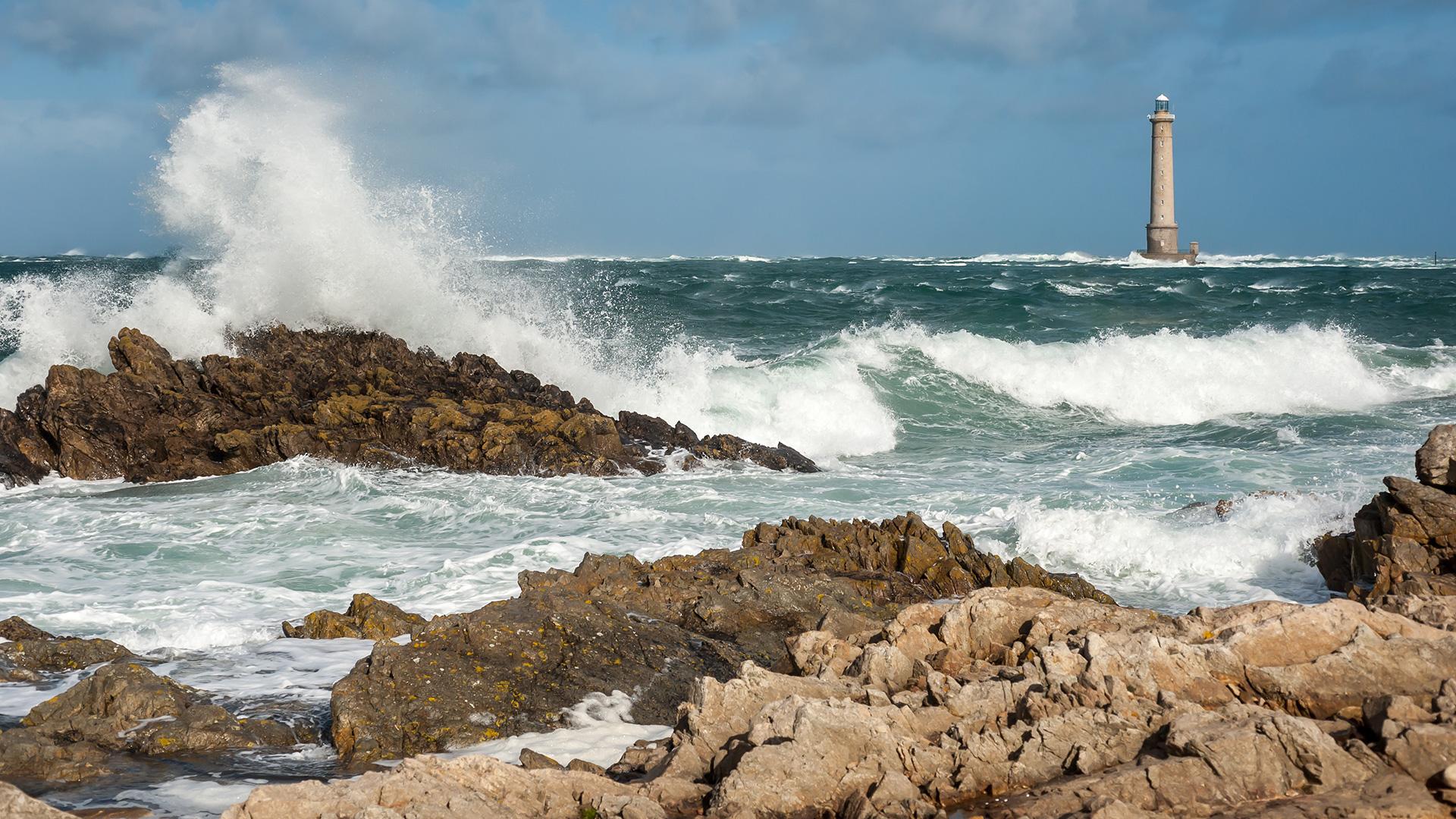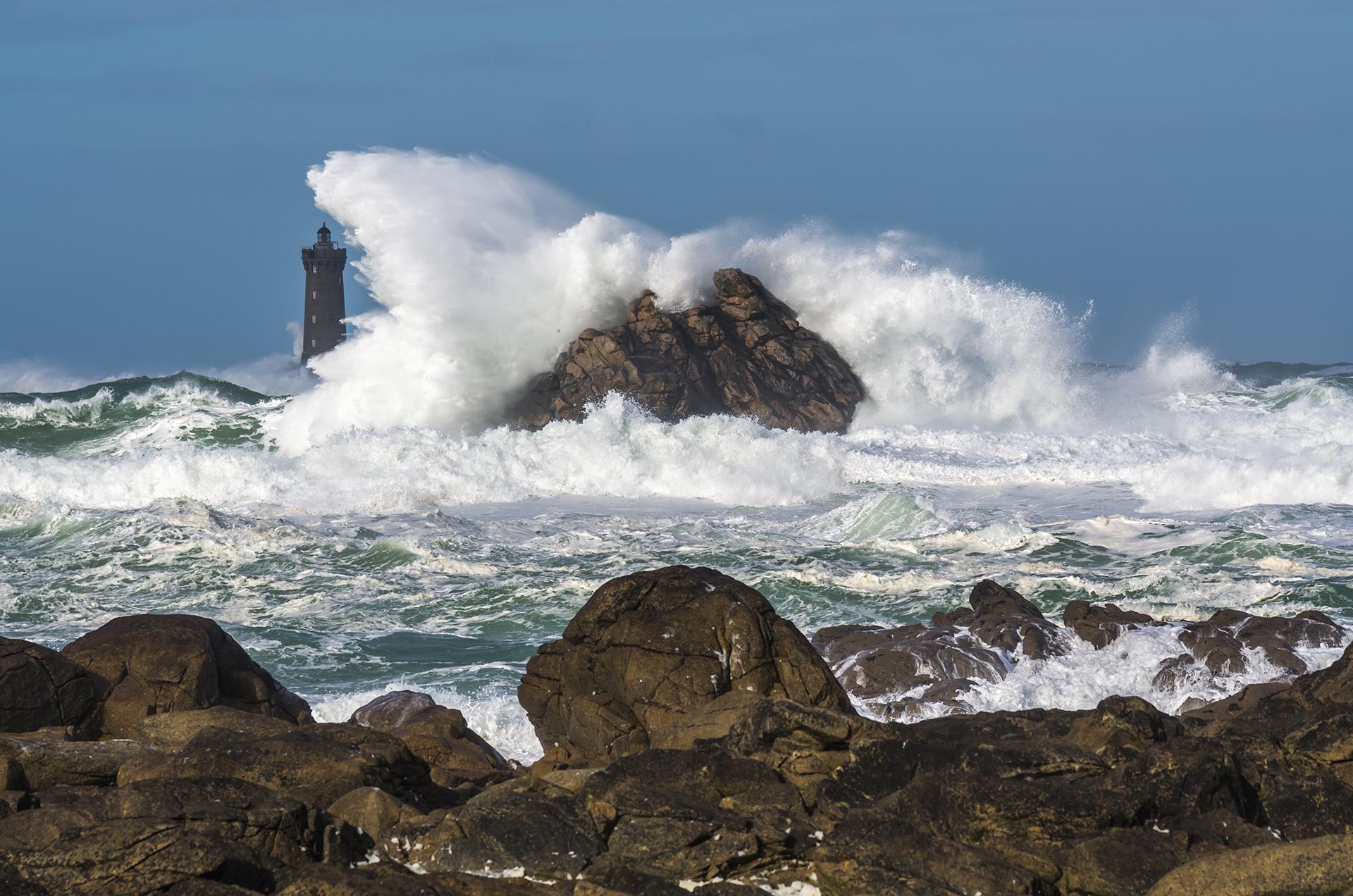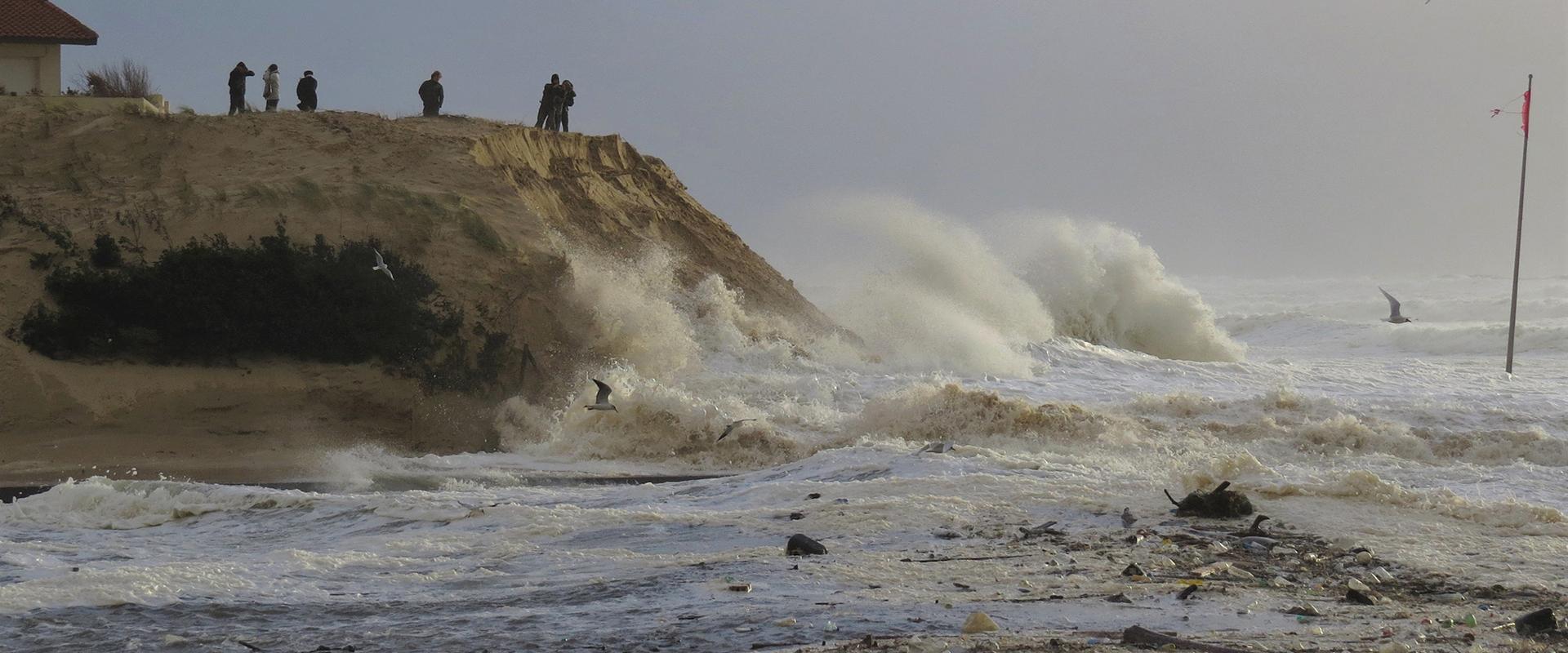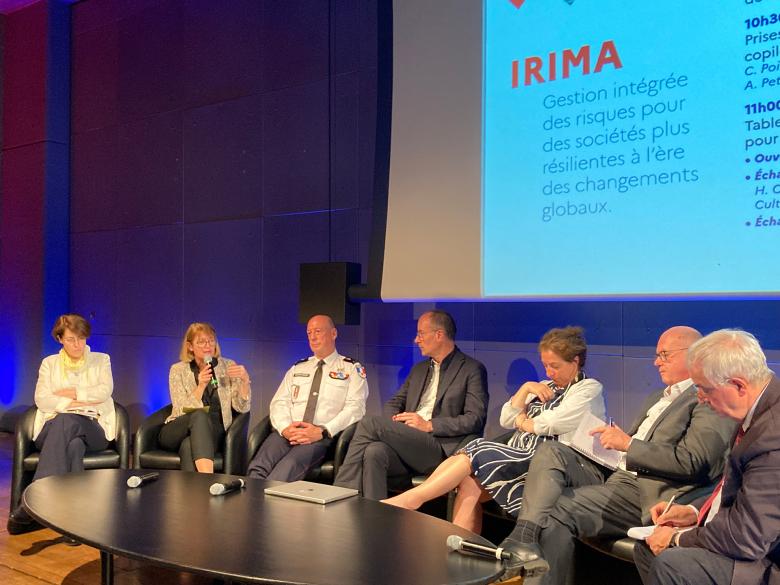IRiMa was set up to formalise a new definition of “risk science”, contributing to the development of a strategy for the management of risks and disasters and their impacts against a backdrop of climate change. For this purpose it implements a series of research projects and expert assessments (involving observation, analysis or support for decision making) to speed up the transition to a society capable of facing a range of threats (hydro-climatic, seismic, technological, health-related, coupled) by adapting and becoming more resilient and sustainable. In order to meet this challenge, which is further aggravated by climate change, it will be necessary to consolidate, stimulate and coordinate national research efforts.

IRiMa's ambition is to establish France as a global leader in risk science and to contribute to the sustainable transformation of society through greater acceptance, preparedness and resilience in the face of risk.
Develop innovative analyses and tools to better detect, understand, quantify, anticipate and manage risks and disasters
The programme will seek to integrate knowledge from the fields of geoscience, engineering, biology, digital technology and human and social sciences in order to take a systemic approach to risk management. It will propose new frameworks of analysis and innovative tools in order to better detect, understand, quantify, anticipate and manage risks and disasters. It will focus in particular on the issue of cascade effects combining natural, environmental, technological and health hazards.
In order to promote a trans-disciplinary dynamic, the PEPR will issue innovative calls for projects, instruments for organising clusters and attracting talent, an incentive policy for young scientists and international partnerships (European in particular), an ambitious policy of life-long training through research, and an infrastructure of research platforms. The latter will help federate the teams around the study of risk analysis and crisis scenarios, as well as the evaluation of decision-making tools and experimentation in collaboration with the various stakeholders.
The research programme (PEPR) is built around a national consortium bringing together the main universities and national reference organisations working in the field of natural, technological and environmental risks.
Scientific research strategy of the IRiMa programme
Gilles Grandjean, director of the RISQNAT programme and co-pilot of IRiMa, explains: “With a range of projects targeting areas of risk that may be specific (mountains, coasts, industrial zones, overseas territories) or cross-cutting (risk and companies, digital platforms, international actions), along with the open calls for projects that will be sent out through the ANR, the IRiMa programme should pave the way for major scientific advances in integrated risk management, as well as stronger ties between research teams and stakeholders.”
The IRiMa programme consists of 6 main scientific goals:
- Goals 1 and 2 are dedicated to cross-cutting methodological issues, with the aim being to build the conceptual frameworks and operational tools covering all possible ways of moving from data to decision-making, with their complexity and nature varying according to the context, making them highly relevant for decision-makers and for society.
- Goals 3 to 5 are dedicated to the specific issues of areas involving particular risks (mountains, coasts, overseas territories, industrial-urban areas).
- Goal 6 focuses on the development of the necessary infrastructure platforms, with particular emphasis on interoperability.
As part of this framework, 7 targeted projects have already been identified to address risks in mountain regions and overseas territories or coastal and NaTech risks, as well as other, more cross-disciplinary projects addressing risks and companies, digital platforms, international actions and a programme of group Chairs. From 2024, we will also see calls for projects that are thrown open more widely to the community.

The main international paradigms today were developed primarily by the National Research Council and American Academy of Sciences, but they are now showing their limits. With this PEPR, we hope to strengthen the position of French scientists and experts in the international community, as well as to provide a fresh perspective and contribute to transforming risk and disaster management methods at different scales.
To find out more
Press contact









